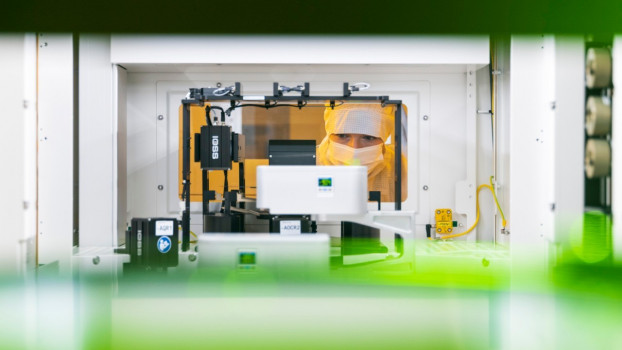Microelectronics is a key success factor for all Bosch businesses. Recognizing the potential of technology in this area early, the company has been manufacturing semiconductor components for over 60 years. This makes Bosch one of the few companies with a deep understanding of microelectronics as well as expertise in electronics and software.
And now Bosch is investing over 400 million euros in semiconductor factories in 2022.
Production in Dresden, Reutlingen and Penang will be expanded.
Most of the capex is for Bosch's new 300mm semiconductor wafer plant in Dresden, where capacity will grow even faster in 2022. About 50 million euros of the planned amount will be invested in a semiconductor wafer plant in Reutlingen near Stuttgart next year. Between 2021 and 2023, Bosch will invest a total of 150 million euros in additional clean rooms at its Reutlingen plant. In Penang, Malaysia, Bosch is also building a new semiconductor test facility. Starting in 2023, this center will test finished semiconductor chips and sensors. These planned investments once again demonstrate the strategic importance of having our own semiconductor manufacturing facilities - the backbone of the technology.
To the current 35,000 square meters of clean rooms in Reutlingen, a total of over 4,000 square meters will be added in two phases. The first phase, the addition of 1,000 square meters of manufacturing space for 200mm semiconductor wafers to bring the total area to 11,500 square meters, has already been completed. In recent months, the office space has been converted into a cleanroom and bridged to the existing semiconductor wafer plant. In September, the new enterprise began producing plates. With this move, the company is responding, in particular, to the growing demand for MEMS sensors and silicon carbide power semiconductors. The second phase of expansion will create an additional 3,000 square meters of cleanrooms by the end of 2023. For this, the company will invest about 50 million euros in 2022 and 2023. Bosch will also create 150 new semiconductor development jobs in Reutlingen.
Another part of the capital expenditures planned for 2022 will go towards the construction of a new semiconductor testing center in Penang. This highly automated and connected plant will be testing semiconductor chips and sensors starting in 2023. In total, Bosch has more than 100,000 square meters of land on the Penang mainland, which will be developed in stages. The initial test center will cover an area of about 14,000 square meters and will include clean and office space, research and training facilities for 400 employees. Excavation work at the new site began at the end of 2020, and construction work began in May 2021. The test center is scheduled to start operating in 2023. The additional test facility in Penang is intended to enable the deployment of new technologies in the future at Bosch wafer factories such as silicon carbide semiconductors in Reutlingen. In addition, the new location in Asia will shorten the delivery times and distances for microchips.
Production at the 300mm semiconductor wafer plant in Dresden began in July this year, six months ahead of schedule. Chips from the new plant are initially installed in Bosch power tools. For automotive customers, chip production began in September, three months ahead of schedule. Since the introduction of 200mm technology in 2010, Bosch has invested over 2.5 billion euros in its wafer factories in Reutlingen and Dresden. In addition, billions of euros have been invested in the development of microelectronics.
Source - https://www.bosch.ru

